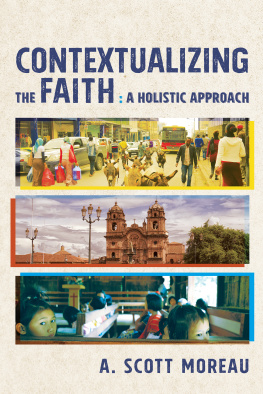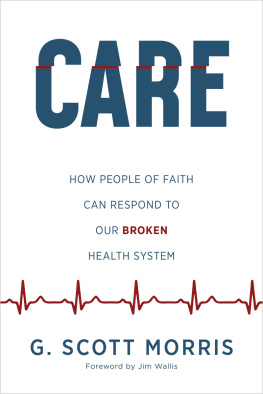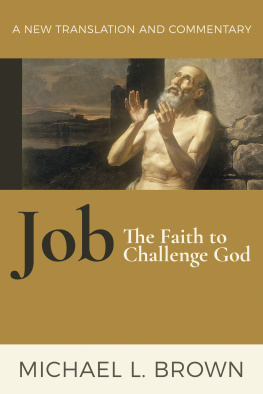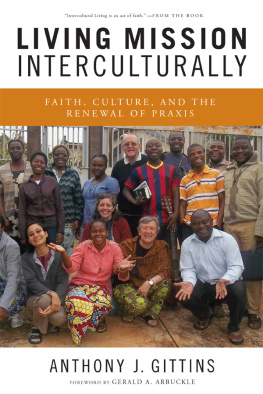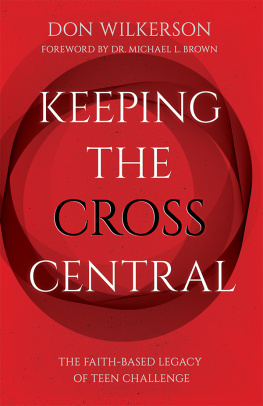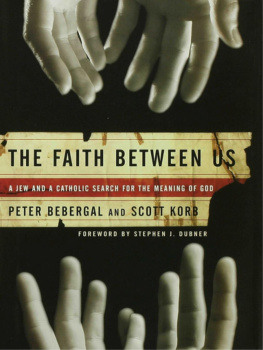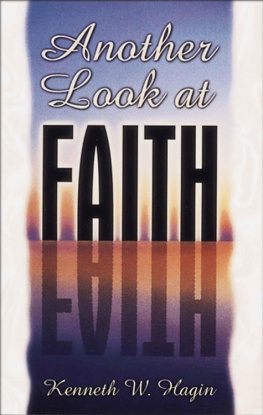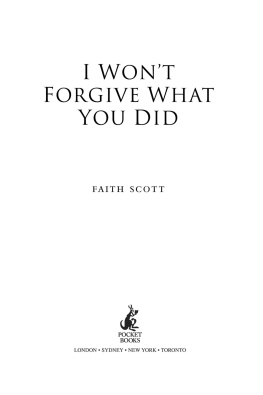A. Scott Moreau - Contextualizing the Faith: A Holistic Approach
Here you can read online A. Scott Moreau - Contextualizing the Faith: A Holistic Approach full text of the book (entire story) in english for free. Download pdf and epub, get meaning, cover and reviews about this ebook. year: 2018, publisher: Baker Publishing Group, genre: Religion. Description of the work, (preface) as well as reviews are available. Best literature library LitArk.com created for fans of good reading and offers a wide selection of genres:
Romance novel
Science fiction
Adventure
Detective
Science
History
Home and family
Prose
Art
Politics
Computer
Non-fiction
Religion
Business
Children
Humor
Choose a favorite category and find really read worthwhile books. Enjoy immersion in the world of imagination, feel the emotions of the characters or learn something new for yourself, make an fascinating discovery.
- Book:Contextualizing the Faith: A Holistic Approach
- Author:
- Publisher:Baker Publishing Group
- Genre:
- Year:2018
- Rating:3 / 5
- Favourites:Add to favourites
- Your mark:
- 60
- 1
- 2
- 3
- 4
- 5
Contextualizing the Faith: A Holistic Approach: summary, description and annotation
We offer to read an annotation, description, summary or preface (depends on what the author of the book "Contextualizing the Faith: A Holistic Approach" wrote himself). If you haven't found the necessary information about the book — write in the comments, we will try to find it.
Contextualizing the Faith: A Holistic Approach — read online for free the complete book (whole text) full work
Below is the text of the book, divided by pages. System saving the place of the last page read, allows you to conveniently read the book "Contextualizing the Faith: A Holistic Approach" online for free, without having to search again every time where you left off. Put a bookmark, and you can go to the page where you finished reading at any time.
Font size:
Interval:
Bookmark:
Drawing upon three decades of global ministry and teaching about contextualization, Scott Moreau offers us a rich, creative, and responsible treatment of the relation between the gospel and particular contexts. Contextualizing the Faith is a wise and reliable guide to issues that are as urgent as they are complex.
Harold Netland , Trinity Evangelical Divinity School
Moreau pushes the boundaries of contextualization beyond systematic theology in significant ways that will impact Christian witness. Engaging the critical need for a full-orbed approach to contextualization, including storytelling, the performing arts, and life rituals, he offers a grounded approach to making Christ known.
Roberta R. King , Fuller Theological Seminary
Approaching contextualization holistically (broader than evangelism and theology and in light of all that the church is and does) is a messy but much-needed task. Thankfully, Moreau lets us in on three decades of thought and practice to offer clarity on this critical topic. This book ought to be read in the classroom and the mission field.
Edward L. Smither , Columbia International University
Nearly fifty years ago, the word contextualization first appeared on missiologys radar. This concept has been debated ever since, and no definition has been universally accepted by scholars and practitioners. Moreaus approach is not to propose a new definition or to deconstruct the concept, but to help us understand the goal of contextualizationthat is, Jesus Christ as the incarnate God. Christ is real and can be experienced daily in all areas and aspects of life. This book is for teachers and students of missions, denominational and mission agency executives, strategists, field-workers, pastors, and parishioners.
Sadiri Joy Tira , Catalyst for Diasporas, Lausanne Movement
In this highly readable and engaging text, Moreau reminds us that contextualization, despite the controversies that surround it, has always been part and parcel of Christian theology and life, and is therefore here to stay. So we should better understand it and discover tools to help us better practice it. Moreau answers the question of how people understand, conceptualize, and live out their faith in light of the values of their society and context. His approach is indeed holistic, going well beyond just contextualizing theology and worship, as he considers seven different dimensions of contextualization. With a judicious amount of theories, illustrations, case studies, biblical examples, questions for reflection, and implications for contextualization, Contextualizing the Faith is comprehensive without being encyclopedic. Missiologists and missionaries have been waiting a long time for a book like this, and Moreau has filled that gap exceedingly well, giving us a book with a global perspective that will likely become a classic text in this crucial area of understanding and living out our faith as followers of Jesus.
Darrell Whiteman , missiological anthropologist, Global Development Inc., Gig Harbor, Washington
For decades, Scott Moreau has been a voice for accessible missiology, producing literature that can withstand the test of academia but remain comprehensible to missionaries in training, church leaders looking to expand their outreach, or even business leaders desiring to share their faith with colleagues. Contextualizing the Faith is Scotts magnum opus, combining his years of cross-cultural experience with his teaching. This is a must-read for anyone seeking to effectively communicate the good news of the gospel across cultures. It goes far beyond adapting biblical doctrine to other contexts because it identifies how all the issues of societyfamily, the marketplace, and moreplay a part in understanding cultures, so that we might be understood in our communication.
Paul Borthwick , senior consultant, Development Associates International
Contextualizing the Faith is a gift to the global church. Moreau broadens the landscape of contextualization, helping us to see the whole human ecosystem wherein culture and Scripture meet. Rich in illustrations, challenging in case studies, thoughtful in questions, sound in scholarship, profoundly practical, and robustly anchored in the Word, this book sings with reasoned thinking, insights for understanding, and grounds for wise decision making, all sure to produce vigorous discussion. This may well be a classic for present and future generations. May it light our path and show us the way ahead.
Duane H. Elmer , Trinity Evangelical Divinity School
2018 by A. Scott Moreau
Published by Baker Academic
a division of Baker Publishing Group
PO Box 6287, Grand Rapids, MI 49516-6287
www.bakeracademic.com
Ebook edition created 2018
All rights reserved. No part of this publication may be reproduced, stored in a retrieval system, or transmitted in any form or by any meansfor example, electronic, photocopy, recordingwithout the prior written permission of the publisher. The only exception is brief quotations in printed reviews.
Library of Congress Cataloging-in-Publication Data is on file at the Library of Congress, Washington, DC.
ISBN 978-1-4934-1568-7
Scripture quotations are from the Holy Bible, New International Version. NIV. Copyright 1973, 1978, 1984, 2011 by Biblica, Inc. Used by permission of Zondervan. All rights reserved worldwide. www.zondervan.com
Cover
Endorsements
Title Page
Copyright Page
Preface
1. Setting the Stage: What Is Contextualization?
2. The Social Dimension: Introduction, Association, and Kinship
3. The Social Dimension as Exchange: Economics
4. The Social Dimension as Learning: Education
5. The Social Dimension as Organizational: Politics
6. The Mythic Dimension
7. The Ethical Dimension
8. The Artistic and Technological Dimension
9. The Ritual Dimension
10. The Experience Dimension: The Supernatural
11. The Doctrinal Dimension
12. The Future of Contextualization
Works Cited
Index
Back Cover
I first encountered contextualization while in seminary in the early 1980s. In church and mission settings the term was in its infancy. Even so, battle lines had been drawn. As the term had been adopted in World Council of Churches circles from 1972 onward and framed in terms of social justice, evangelical missiologists were wary of it and its use by those more theologically liberal than they were. Well-used terms such as adaptation and indigenization were safe and useful (they remain so today), but at the same time limited. Over the several decades since then, evangelical missiologists have accepted contextualization into the lexicon, albeit with a different focus and orientation than Shoki Coe (1972) intended when he first used the term in his essay Contextualizing Theology.
Ive been thinking about, using, modifying, defining, and exploring the term ever since I encountered it in seminary. This book is the result of ten years of ministry practice; thirty years of teaching courses on contextualization; writing and editing numerous articles, chapters, and a book mapping evangelical approaches; talking about it with students and colleagues; and gleaning from conferences and seminars. Through all these contributions I have tried to convey the significance of the idea that contextualization is squarely at the intersection of culture, gospel, and gospel bearer (whether autochthonous or expatriate).
In the early years, my focus, like that of most of my colleagues, was on contextualizing theology. Like them, I wanted to guard against warping or even jettisoning biblical truths. I also recognized that whenever we try to organize and convey biblical truths to others who differ from us, we engage in contextualization. At the same time, I also questioned my own organizations approach to evangelism in its use of a tool known as The Four Spiritual Laws. Originally developed for use among American college students, this linear, outlined approach to presenting the gospel had a great appeal to me as an American student majoring in engineering in my university years. It is a bare-bones listing of the fundamental facts of the gospelwith illustrations used to highlight or explain those facts. I liked the content, the order, and the call for response.
Font size:
Interval:
Bookmark:
Similar books «Contextualizing the Faith: A Holistic Approach»
Look at similar books to Contextualizing the Faith: A Holistic Approach. We have selected literature similar in name and meaning in the hope of providing readers with more options to find new, interesting, not yet read works.
Discussion, reviews of the book Contextualizing the Faith: A Holistic Approach and just readers' own opinions. Leave your comments, write what you think about the work, its meaning or the main characters. Specify what exactly you liked and what you didn't like, and why you think so.

